What to do when water gets into a gas pipe: an overview of options for eliminating the problem and possible consequences
More than once, tight-fistedness or unjustified reliance on one’s own strength has cost people a pretty penny.For example, the owner made the absolutely correct decision to replace the old gas water heater: all appliances fail someday, and this one is no exception. But independent connection led to an emergency situation.
The article we have proposed examines in detail the most common result of an amateur’s own manipulations in the gas industry. We will tell you what to do when water gets into the gas pipe. We will tell you what to do if a problem arises and to prevent it.
The content of the article:
Man-made emergency
It is enough to read the news to be convinced that water penetration into the gas pipe of the water heater is not such a rare occurrence. So that we ourselves do not end up in a similar situation, let’s figure out how others get into it.
Let's say an old gas water heater has broken down or simply stopped being pleasing to the eye. Of course, it needs to be changed so as not to be without hot water.
Today, in the era of shortage-free trade, it is not difficult to buy a new gas heater, if only you had the money. But it’s not enough to just purchase a new household appliance; it also needs to be properly installed in the apartment’s gas circuit.
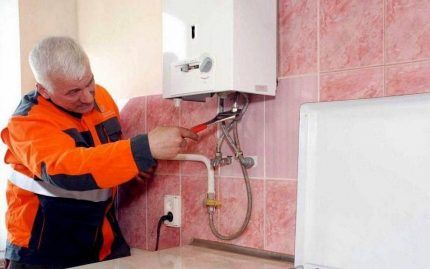
The average home craftsman does not see any problem in such a situation.After all, he has just successfully dismantled the old equipment and is ready install a new column in his place.
He does not want to turn to gas specialists for help due to a number of reasons:
- it is necessary to clarify which organizations in the city carry out this type of work legally - they have the appropriate license;
- it is necessary to provide the selected contractor with a set of documents;
- you will have to wait for the approval of technical conditions;
- You need to pay for the connection service.
People have just bought an expensive gas water heater; they don’t want to pay for the services of representatives of the gas company, and even wait for some time for their arrival. After all, the old device is usually already turned off. The prospect of living for several days without hot water drives you crazy and pushes you to decide to do everything yourself and “quickly.”
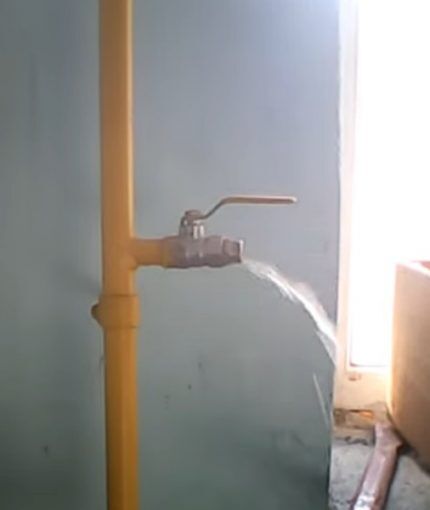
And here, when the new column is almost installed, it is so easy to make a fatal mistake: confuse the water and gas connections. So, the connection was made, the water was open, and the master went to call the household members so that they could appreciate the improvement in the quality of life that had overtaken their family.
However, it is not necessary to be distracted for a long time for water to enter the gas pipe in this situation. While the craftsman froze in anticipation of warm water from the tap, it streamed into the gas pipeline, since the pressure in it is lower than in the water supply.
Possible consequences and ways to eliminate them
As a rule, it is not the person who caused the accident who shows the first signs of concern about the current situation.One can only assume that he is in a state of shock, because it is simply impossible not to notice that something has gone wrong.
Complaints are beginning to come from other residents whose gas stoves suddenly stopped functioning and heating devices, and water streamed from the burners.

Emergency services have to shut off the gas supply and begin carrying out repair work of varying levels of complexity. Water will need to be removed from the gas pipe along its entire length.
If the culprit of the accident lives on the top floor of a multi-storey building, gas workers will have to check the gas appliances of all his neighbors, who, in turn, are obliged to provide access to their apartments.
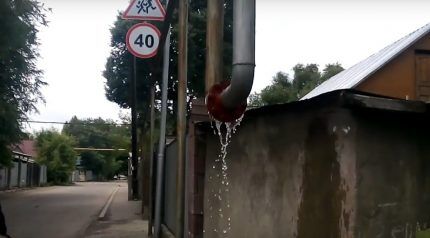
Frosty weather can further complicate the emergency situation. After all, draining the water is easier than breaking through the ice plugs that have formed in the gas pipeline. If the pipeline runs along the facade of a building, it is heated using gas burners. This is dangerous and painstaking work.
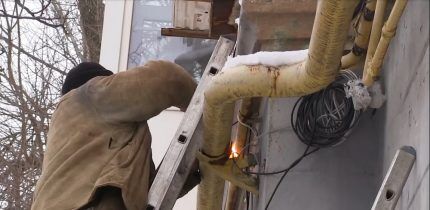
If the water is in pipes located underground, you will have to dig them up and then drill drain holes into them.
The ice plugs are pierced with special cables, after which all the resulting crumbs are carefully removed.Sometimes it is easier to cut out entire sections of the route and replace them with new ones rather than risk leaving some of the frozen water inside.
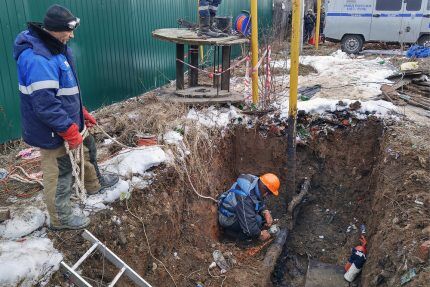
Now you can weld the holes, check the gas pipeline for leaks, and only then bury the trench.
What will the person responsible for the accident have to pay for?
On average, work to eliminate the consequences of incorrectly connecting a instantaneous gas water heater can take 2-3 days. All this time, the neighbors of the craftsman may remain completely or partially without gas. One can only imagine how their gratitude will know no bounds.

In addition to the popular anger that fell on his head, the troublemaker will also feel financial losses.
He will have to pay the cost, voluntarily or through the court:
- emergency work using construction equipment;
- gas lost during pipe opening;
- gas pipes, which have to be changed in case of ice jams.
The total amount of these costs can reach several tens of thousands of rubles. To avoid getting into a similar situation, it is necessary to follow the Rules approved by the Government of the Russian Federation No. 410 dated May 14, 2013, and involve specialists for the safe installation of instantaneous gas water heaters.
Administrative responsibility and its size
Of course, the direct damage resulting from the accident will have to be paid by the identified culprit.But will he be fined for water found in a gas pipe?
And if so, to what extent and on what basis? In answering this question, we will proceed from the assumption that the result of an error when connecting the column was only the entry of water into the gas pipeline.
In this case, most often we are talking about the sanctions provided for in Article 7.19 of the Code of Administrative Offenses of the Russian Federation “Unauthorized connection and use of electrical, thermal energy, oil or gas.”
This article provides for the following fines:
- 10,000 – 15,000 rubles for citizens;
- 30,000 – 80,000 rubles for officials;
- 100,000 – 200,000 rubles for legal entities.
For officials, the fine may be replaced by disqualification for a period of 1-2 years. Repeated violation aggravates guilt and increases financial liability.
This could be the end of the discussion of the topic of fines, if not for one nuance: lawyers disagree on whether Article 7.19 of the Code of Administrative Offenses of the Russian Federation can be applied in the situation we are considering. Since such a discrepancy exists, let us consider the arguments of both sides.
Unauthorized connection is a tie-in
There is an opinion, which is usually expressed by defenders of those responsible for the accident, that an unauthorized connection is made for selfish reasons, the purpose of which is to steal gas. It is carried out in addition to metering devices for unaccounted consumption of this resource.
This connection can be made using one of two possible methods:
- insertion into a main line located underground or on the street;
- connection to a household line that was previously functioning, but was disconnected by the resource supplying organization for non-payment or upon termination of the contract for other reasons.
Obviously, both of these connection methods require insertion, that is, connection in a place where there is no corresponding technical branch to which, for example, a flexible rod could be screwed.
The connection of the gas water heater was carried out in a place that was technically provided for in the household scheme of the current contract with the gas supplier. That is, such a connection cannot be considered an insert; such a connection is not unauthorized, and Article 7.19 of the Code of Administrative Offenses of the Russian Federation, in this case, cannot be applied.
There was a violation of the Rules for the Use of Fuel, the punishment for which is provided for in Article 9.11 of the Code of Administrative Offenses of the Russian Federation. Penalties in this case (in rubles):
- 1000-2000 for citizens;
- 2000-4000 for individual entrepreneurs or officials;
- 20,000 – 40,000 for legal entities.
For entrepreneurs and legal entities, administrative suspension of activities is possible.
Any arbitrariness is unauthorized
There is also an opposite opinion, based on different interpretations of the concept of “unauthorized connection”. Supporters of this decision believe that not only the insertion, but also the replacement of one household appliance with another in violation of the existing Rules for the use of gas is unauthorized.
Clause 10 of these Rules (approved by Resolution No. 410 of May 14, 2013) provides grounds for replacing gas equipment and the fact that only a specialized organization can carry out this type of work. Consequently, work carried out independently is considered unauthorized.
It should be noted once again that civil liability in accordance with Art. 1064 of the Civil Code of the Russian Federation, as well as compensation for costs associated with calling emergency services, the violator faces regardless of administrative punishment.
Conclusions and useful video on the topic
The following video will introduce you to the consequences of unsuccessful unauthorized reinstallation of a water heater with water entering the gas pipeline:
Sometimes identifying the source of a leak is not so easy. And the consequences of water getting into a gas pipe can be fatal, since in the absence of gas, household appliances do not always automatically turn off. The characters in the following video talk about this:
Obviously, if water accidentally gets into the gas system, the person responsible for the accident faces serious trouble. Even if it is possible to avoid or reduce administrative liability, the moral and material costs will be significant.
It turns out that it is cheaper not to break the Rules and seek help from a specialized organization than to cause trouble for yourself and your neighbors.
Would you like to share your own experience in eliminating problems when water gets into the gas supply system? Do you have useful information on the topic of the article? Please write comments in the block form below, ask questions and post photographs.
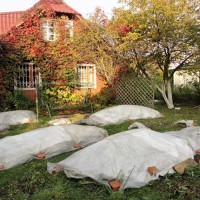


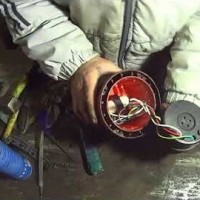
What if the gas workers installed a boiler, and every other day water accumulates in it and freezes? Where can I complain?
Water got into the gas meter from the main line of the settlement and filled the gas pipes of the post-meter and as a result the gas meter failed. Replacing the meter. Who is guilty?
Now I would pay ten stupidly for my uncle to come and tighten 4 bolts on the boiler, yeah, what else is not needed???? Make a replacement - free of charge, and there will be no problems!!!!